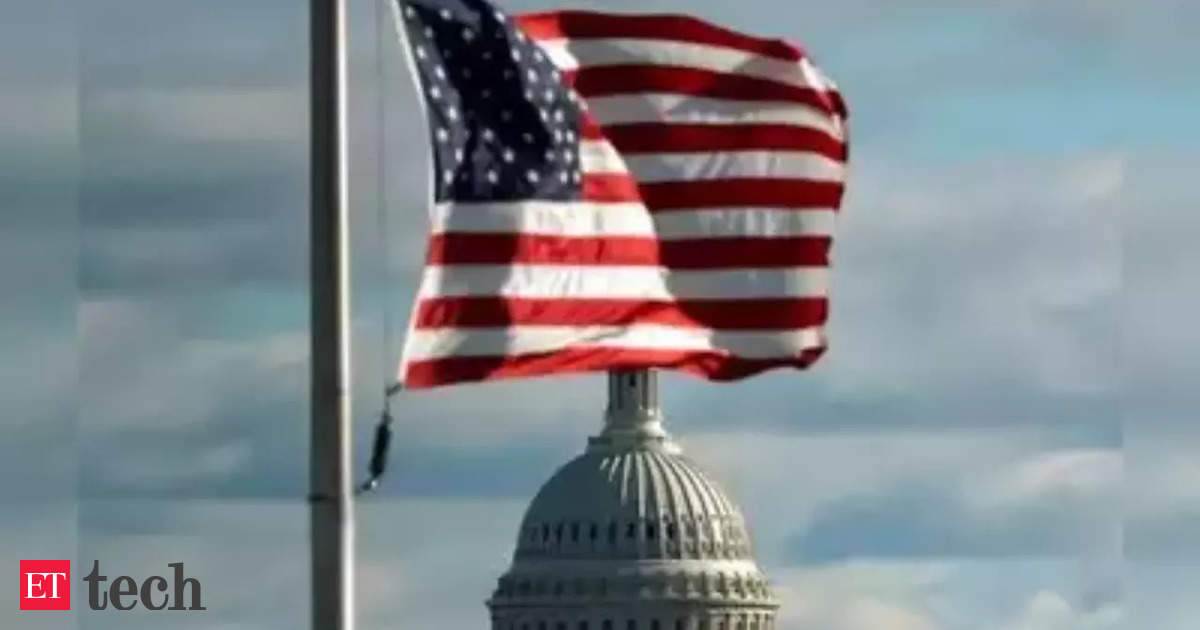Politics tamfitronics
It seems hard to believe now, but in 2021, Time named Elon Musk its Person of the Year. True, that designation doesn’t necessarily equate to a stamp of approval. But the magazine’s coverage of Musk at the time was very favorable, almost fawning, highlighting his assertion that “my career is Mars and cars.”
A lot of people would disagree with that declaration now. Of course, Tesla and SpaceX remain big businesses. But Musk himself is largely defined in many minds by the way he changed X, the site formerly known as Twitter — making more room for right-wing extremists, including a substantial number of pro-Nazi accounts, and his own embrace of antisemitic and racist conspiracy theories.
Musk’s right-wing turn isn’t universal or even typical: Reporting suggests that even with the rightward turn of several boldface names, Silicon Valley remains heavily Democratic. Political contributions from the internet industry, in particular, remain strongly tilted toward Democrats. But right-wing tech bros are exerting a significant and, I’d argue, malign influence on the political landscape.
Consider the case of JD Vance, the junior senator from Ohio and Donald Trump’s running mate.
How did Vance get to where he is? He’s a remarkable campaigner — remarkable, that is, in the sense that he seems incredibly bad at it. I won’t rehash the “cat ladies” contretemps except to say that it contributed to what will probably go down as one of the worst running-mate rollouts of all time. So who picked this guy?
The answer, it appears to me, is a handful of tech moguls led by billionaire Peter Thiel, who in effect bought Vance a Senate seat by overwhelming his rivals with a flood of cash.
Discover the stories of your interest
And in so doing they set someone who has, in my view, morphed into an ugly extremist on a path that could quite possibly put him a heartbeat away from the presidency: Bear in mind that Vance took the lead in spreading claims about Haitian migrants in Springfield, Ohio, stealing and eating neighbors’ pets, and has gladly continued to perpetuate these claims even though they appear to be completely unfounded.
Then there’s cryptocurrency, which isn’t quite like other parts of the technology sector. Whatever you think of Musk, Tesla produces a real product with real uses; so, in a different way, does PayPal, the initial source of Thiel’s vast wealth. Crypto, by contrast, remains a solution in search of a problem.
But a couple of months ago, there was Bernie Moreno, the pro-crypto Republican candidate for Ohio’s other Senate seat, at a bitcoin convention asking, “Are you sick of these politicians who say bitcoin is for drug dealing and money laundering?” Actually, no: I’m sick of the fact that crypto’s most obvious and ready use is indeed for drug dealing and money laundering, having tried and failed to find significant legal uses.
Yet crypto is marketed as a revolutionary technology, and some of its biggest boosters are among the tech bros who’ve been lurching to the right, so it makes sense to put crypto’s political role in the same basket.
And crypto is playing a big role in the 2024 election. Axios writes that according to an August report from Public Citizen, “The crypto industry accounts for almost half the money contributed by corporations to political action committees so far in 2024.” The Washington Post just reported that in Ohio, the industry has spent more than $38 million supporting Moreno against the incumbent Democrat, Sherrod Brown.
Why is crypto spending so big? Pretty clearly, the industry fears regulation: Gary Gensler, chair of the Securities and Exchange Commission, has argued that crypto assets should be viewed as and regulated like securities — which could damage or even wipe out their value by undermining some of the hype.
Beyond that, a growing share of crypto assets consists of stablecoins, issued by institutions that peg their value in terms of traditional currencies, like U.S. dollars. We have a name, though, for institutions that issue liabilities that they promise to exchange for hard currency on demand: banks. And centuries of experience tell us that banks need to be regulated to ensure financial stability. Even Adam Smith, in “The Wealth of Nations,” called for bank regulation.
But stablecoins aren’t regulated like banks, and it’s not clear whether they could compete if they were.
So crypto’s political spending clearly seems motivated by financial self-interest, while the right-wing lurch of other tech bros may — as a Facebook founder, Chris Hughes, put it the other day in the Times — reflect a sense of common cause with Trump, who like them believes that he shouldn’t have to play by the rules. (I’d add that men of great wealth can sometimes be susceptible to conspiracy theories because they are all too often surrounded by people who tell them what they want to hear — and who laugh at their jokes even when they aren’t funny.)
Whatever their motivations, political spending by tech bros could have huge effects on U.S. politics. That Ohio race, by itself, could determine control of the Senate, with enormous impact on federal policy on many fronts.
In short, the tech bro style in American politics has emerged as a major force, one that, in my view, is pushing our democracy closer to catastrophe.










